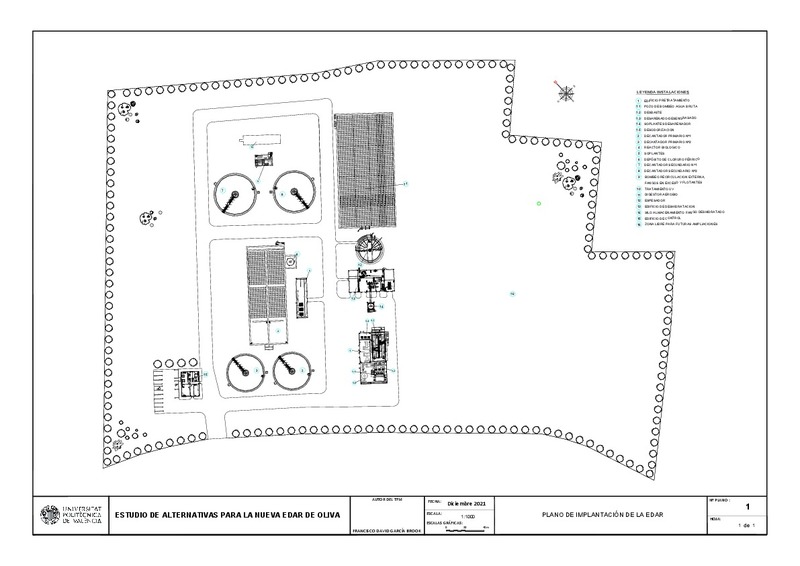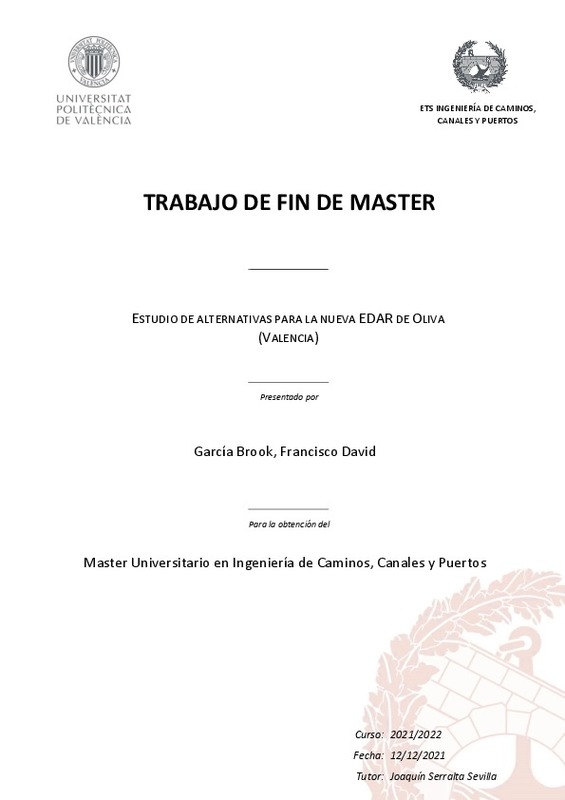JavaScript is disabled for your browser. Some features of this site may not work without it.
Buscar en RiuNet
Listar
Mi cuenta
Estadísticas
Ayuda RiuNet
Admin. UPV
Estudio de alternativas para la nueva EDAR de Oliva (Valencia)
Mostrar el registro completo del ítem
García Brook, FD. (2021). Estudio de alternativas para la nueva EDAR de Oliva (Valencia). Universitat Politècnica de València. http://hdl.handle.net/10251/180436
Por favor, use este identificador para citar o enlazar este ítem: http://hdl.handle.net/10251/180436
Ficheros en el ítem
Metadatos del ítem
| Título: | Estudio de alternativas para la nueva EDAR de Oliva (Valencia) | |||
| Autor: | García Brook, Francisco David | |||
| Director(es): | ||||
| Entidad UPV: |
|
|||
| Fecha acto/lectura: |
|
|||
| Resumen: |
[ES] La estación depuradora de aguas residuales de Oliva es incapaz de tratar todas las aguas residuales producidas en el Municipio, realizándose el vertido de parte de dichas aguas sin depurar a través de un emisario ...[+]
[EN] Oliva's wastewater treatment plant is not capable of treating all the wastewater produced in the municipality, and part of this untreated water is discharged through an submarine emissary. For this reason it is necessary ...[+]
|
|||
| Palabras clave: |
|
|||
| Derechos de uso: | Reserva de todos los derechos | |||
| Editorial: |
|
|||
| Titulación: |
|
|||
| Tipo: |
|
Localización
recommendations
Este ítem aparece en la(s) siguiente(s) colección(ones)
-
ETSICCP - Trabajos académicos [2365]
Escuela Técnica Superior de Ingenieros de Caminos, Canales y Puertos








